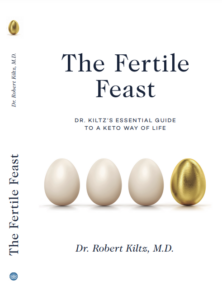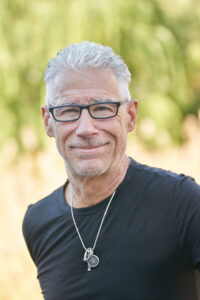In Search of the Stork: Over 40 & Trying to Conceive by Dr. Robert Kiltz, Author, The Fertile Feast
 I’m often asked, “Can you have grey hair and still get pregnant?” I’m happy to say that despite all of the grim statistics doctors and researchers like to throw your way, it’s still possible to get pregnant at 40 and beyond. It might take longer for it to happen, and it may not happen on its own, but fortunately, fertility medicine has a lot of tools in the tool kit to make it possible. Here’s what women over 40 need to know:
I’m often asked, “Can you have grey hair and still get pregnant?” I’m happy to say that despite all of the grim statistics doctors and researchers like to throw your way, it’s still possible to get pregnant at 40 and beyond. It might take longer for it to happen, and it may not happen on its own, but fortunately, fertility medicine has a lot of tools in the tool kit to make it possible. Here’s what women over 40 need to know:
Get the facts. Don’t assume just because you’re over 40 that you’re in an unwinnable race against the clock. A simple blood test can give you and your doctor an idea of what your ovarian reserve looks like. An AMH test is a blood test that provides an idea of how many eggs are still “on deck.”. But remember, quantity doesn’t equate to quality. Healthy eggs perfectly capable of resulting in a baby can still be made in your 40s.
A healthy body is a fertile body. Whether you’re male or female, the same healthy habits that make a twenty-year-old fertile are what make a 40+ couple fertile. You control what you eat and how you live. A fertile body is within your power.
- Avoid alcohol, tobacco, and drugs.
- Eat a ketogenic diet (high-fat, low carb, moderate protein. I recommend my E.B.B.I.S. Diet (pronounced “babies”) to anyone, particularly men and women dealing with lots of inflammation.
- Take high-quality fertility supplements like those from Molecular Fertility.
- Acupuncture, Traditional Chinese Medicine, and other integrative approaches can boost your chances, and the longer you do it, the better impact it has.
Males partners need to be healthy too. We’ve all heard that men can father a child into their 70s. While true, it’s also a fact that unhealthy sperm have a negative effect on on-going pregnancies. We recommend that both men and women trying to conceive optimize their health.
It only takes one. Don’t be discouraged by age or a number. It takes one egg and one embryo to make one baby. You have more eggs when you’re younger and fewer when you’re older. But as I like to remind all of my patients regardless of age, whether you retrieve three eggs or 15, it only takes one good one to bring home a baby.
Persistence is key. Nobody has a 3% chance of getting pregnant. It’s 100% yes or 100% no, even for women in their 20s. You’re either going to get pregnant, or you’re not during any given cycle, whether you’re 18 or 42. For older women and even younger women with other fertility challenges, persistence plus perseverance equals pregnancy. Cumulative pregnancy rates are quite high. It takes two cycles for a healthy 20-something woman with no fertility issues to get pregnant with IVF. It’s likely going to take someone in their 40s several more cycles.
Your uterus doesn’t age. Well, not like your ovaries do. As a muscle, the uterus can be regenerated to carry a baby up to age 74. So even if pregnancy is not achievable with your own eggs (fresh or frozen), there’s a good chance donor eggs may be a viable option.
You’re not alone. More than 100,000 Americans give birth in their 40s each year; why not you? The biggest inspiration for women in their 40s trying to conceive is other women in their 40s who have done it! Here’s a recent Success Story from my patient Sorina, who traveled from California to see me in New York for treatment.
Want to hear an inspiring story?
Sorina was 41 years old when she woke up and realized she was single and childless. She knew she wanted children, so she made an appointment with her local Ob/Gyn for a fertility assessment. After lots of tests, she was told she had diminished ovarian reserve (DOR) and even fewer eggs than most women her age. The prognosis was not good. Her doctor advised her that she had only a 15% chance of becoming pregnant with IUI – or, more bluntly, there was an 85% chance Sorina would not get pregnant. She subsequently underwent four failed IUIs: one natural, three medicated – with one being injectable meds and none of them was successful.
After all of the IUIs failed, her doctor then recommended IVF with donor eggs. All of this was very difficult to process and even more so when she researched what it would cost. This was something Sorina couldn’t afford and she really wanted to try IVF with her own eggs. Unfortunately, most fertility clinics wouldn’t accept her because of her age and desire to use her own eggs.
Sorina continued to research her options when she came across a patient board that recommended my clinic, CNY Fertility. Sorina came to see us shortly thereafter. We discussed her options together and completely supported her in trying to use her own eggs. We came up with a plan to proceed with IVF while also opting to get donor eggs if her usual 1-2 eggs did not come through. We started her on an immune protocol to reduce body inflammation and increase the chances her body would accept/carry a pregnancy. At 43 years of age and single, Sorina welcomed a little boy into the world–her joy and biggest blessing!
 Being single isn’t an end-all to motherhood and neither is age. There are ways to make it happen. Read Sorina’s Full Story.
Being single isn’t an end-all to motherhood and neither is age. There are ways to make it happen. Read Sorina’s Full Story.
ABOUT DR. ROBERT KILTZ:
Dr. Robert Kiltz is a board-certified OB/GYN and reproductive endocrinologist, and Founder and Director of CNY Fertility, one of the largest and most dynamic fertility centers in the country, featured in the Wall Street Journal, Today Show, and CNBC for helping shape the future of fertility medicine. Dr. Kiltz has earned recognition outside of the fertility world for pioneering the holistic health movement and the keto lifestyle. He is the author of several books including “The Fertile Feast” and “Daily Inspirations“ and which offers 365 exercises and ideas for mental wellness each day. His latest book, “Living Your Best Life” will be released in 2021. In addition to his own media outlets, Dr. Kiltz appears regularly on numerous popular blogs and has shared his views as a TEDx speaker. Visit www.doctorkiltz.com.
Tags: artificial insemmination, donor eggs, dr. robert kiltz, fertility, IVF, parenthood, pregnancy, trying to conceive















